Health Advice
/Health
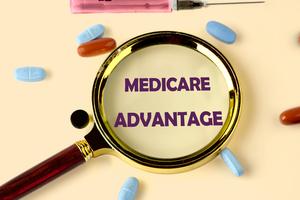
Should you ditch your Medicare Advantage plan? Most people do
Medicare coverage doesn’t just mean signing up for government insurance. In fact, more than half of Medicare recipients now get their coverage through a Medicare Advantage plan, or Medicare Part C plan, which is offered by a private insurer.
Advantage plans are an alternative to original Medicare, replacing Part A (hospital coverage), Part B ...Read more

Environmental Nutrition: Certain foods may help manage hunger
If you’re looking to help curb hunger and limit excessive snacking, choosing the right kinds of foods can make a big difference in these efforts. Certain foods can help promote satiety, which can help keep you feeling fuller for longer. Here are three of our favorites:
1. Oats are high in fiber, especially beta-glucan, and help slow or delay ...Read more

5 healthy reasons to eat more bananas
Bananas — aka the yellow-peeled fruit that sits on your kitchen counter until it’s way too brown — are a pretty controversial fruit. Many people avoid bananas because they’re naturally high in carbohydrates and sugars when compared to most other fruits. Yes, bananas are one of the higher-sugar fruits you can eat, but that doesn’t...Read more
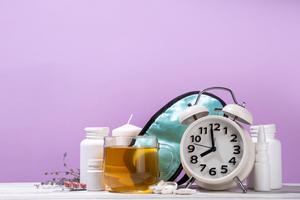
Should you be sleepmaxxing to boost health and happiness?
If you’ve been on TikTok lately, you know it’s hard to avoid countless influencers touting a concept called sleepmaxxing. Their posts provide tips and tricks to get longer, better, and more restorative sleep. And why not? Sleep is considered a pillar of good health and is related to everything from brain health to cardiovascular health, and ...Read more

Mayo Clinic Q&A: Mindfulness and mental health
DEAR MAYO CLINIC: I’ve been hearing a lot about mindfulness meditation lately and how it can help reduce stress and improve overall well-being. But I’m a bit skeptical and don’t really understand how sitting still and doing nothing can make such a big difference. I have a busy and active lifestyle, and the idea of spending time just ...Read more
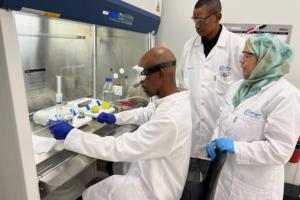
In axing mRNA contract, Trump delivers another blow to US biosecurity, former officials say
The Trump administration’s cancellation of $766 million in contracts to develop mRNA vaccines against potential pandemic flu viruses is the latest blow to national defense, former health security officials said. They warned that the U.S. could be at the mercy of other countries in the next pandemic.
“The administration’s actions are ...Read more
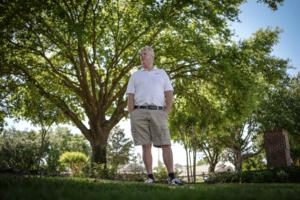
Bill of the Month: A Medicaid patient had a heart attack while traveling. He owed almost $78,000
On Christmas Day at the WaTiki indoor water park, Hans Wirt was getting winded from following his son up the stairs to the waterslides.
Wirt’s breathing became more labored once they returned to the nearby hotel where they and Wirt’s girlfriend were staying while visiting family in Rapid City, South Dakota.
Then he grew nauseated and went ...Read more
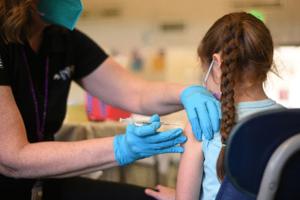
'A welcome silence' emerges from insurance companies on COVID vaccine coverage
ATLANTA — Headlines blared in May when U.S. Department of Health and Human Services Secretary Robert F. Kennedy Jr. announced that the Centers for Disease Control and Prevention would stop recommending COVID-19 vaccinations for some people — namely healthy pregnant women and healthy children over 6 months old. That could mean insurance no ...Read more

Score a bonus with these video gaming tips: Extra life in the real world
In video games, all players usually need to do to stay healthy is to drink the occasional healing potion or perhaps grab a floating heart. Avoiding zombies and killer aliens helps, too.
In real life, deadly monsters may be less common, but maintaining health is trickier. Luckily, it doesn't take a secret hack to stay well while playing, experts...Read more
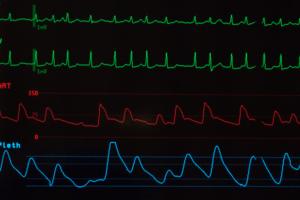
Mayo Clinic Q & A: Why a fluttering heart could lead to stroke
DEAR MAYO CLINIC: I've been diagnosed with atrial fibrillation. I've read that it puts me at greater risk of stroke. Can you tell me more about this?
ANSWER: You may not have known you had atrial fibrillation (AFib) until your condition was discovered during a physical examination. For others, AFib can have life-altering symptoms that affect ...Read more
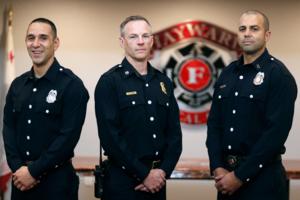
With cancer the leading cause of death for firefighters, 1 Bay Area fire department is partnering with biotech to improve the odds
Every day, firefighters are exposed to cancer-causing chemicals from the scorched aftermath of forest fires, the melting pot of kitchen cleaning supplies in burning homes, and abandoned polyurethane appliances and bags in homeless encampment blazes.
Cancer has jumped to the leading cause of death among firefighters; they have a 9% greater risk ...Read more

If US halted fluoride, kids' cavities would grow by millions, study says
Fluoride — it’s in your toothpaste, your drinking water and now the occasional legislative bill. Two U.S. states have already decided to stop adding it to their water supplies — a trend concerning local dental experts.
Now, a new study has discovered what banning the mineral on a larger scale could mean for children and their parents. The...Read more
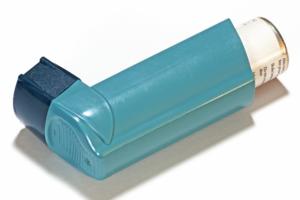
Ask the Pediatrician: Can asthma be predicted?
One in every 10 kids in the United States has asthma, a chronic breathing condition that can affect nearly every part of their lives. Asthma is one of the main reasons kids miss school and a leading cause of childhood hospitalization.
Research shows that a family history of asthma increases the chances that your child may develop it too. Early ...Read more
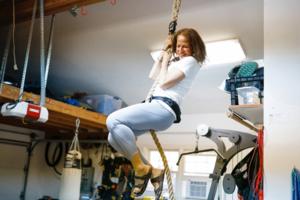
NASA-inspired low-vibration belt lowers bone fracture risk
SAN JOSE, Calif. -- For some, Osteoboost might initially evoke TV informercials for gadgets that promise to shock people’s abdominal muscles into six-pack formation while they sit, or mid-20th century contraptions that professed to jiggle away fat without exercise.
But this device, a low-vibration belt that resembles a fanny pack, received ...Read more
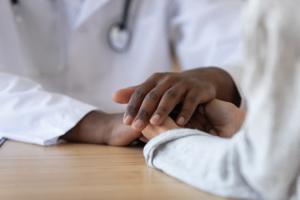
Immunotherapy boosts chemotherapy in combating stage 3 colon cancer
ROCHESTER, Minn. — Colon cancer is the third most prevalent form of cancer in the U.S., and while screening has helped detect and prevent colon cancer from spreading, major advancements in treating colon cancer have lagged.
Now, new research led by Mayo Clinic Comprehensive Cancer Center found that adding immunotherapy to chemotherapy after ...Read more

Two patients faced chemo. The one who survived demanded a test to see if it was safe
JoEllen Zembruski-Ruple, while in the care of New York City’s renowned Memorial Sloan Kettering Cancer Center, swallowed the first three chemotherapy pills to treat her squamous cell carcinoma on Jan. 29, her family members said. They didn’t realize the drug could kill her.
Six days later, Zembruski-Ruple went to Sloan Kettering’s urgent ...Read more

'Life of Chuck' review: It's a wonderful, apocalyptic life in Stephen King land
“The Life of Chuck,” a slick but ickily grandiose reminder to take your dance lessons while you can, also reminds us that every generation gets its own variations on “It’s a Wonderful Life” — movie fantasies designed for affirmation and comfort, while unnerving us a little.
There’s a third reminder, too: One person’s eyeroll is ...Read more
Urinary tract infection drug recalled. Tablets could be tainted and deadly
Three lots of a drug designed to treat various urinary tract infections have been recalled because the white round tablets might have black spots from microbial contamination.
The spotting of spots “was reported in a product quality complaint,” Amneal Pharmaceuticals said in its FDA-posted recall notice about Sulfamethoxazole/Trimethoprim ...Read more

Review: 'The Life of Chuck' is an apocalyptic, soul-seeking puzzle that's missing a few pieces
How narcissistic to believe you're living in the end times. The thought might cross your mind — I'm guilty of it, sure — but it can be chased off by imagining how it felt to witness the Dust Bowl or the French Revolution or the fall of Tenochtitlan. "The Life of Chuck," a sentimental jigsaw puzzle by Mike Flanagan ("Doctor Sleep") from a 50-...Read more
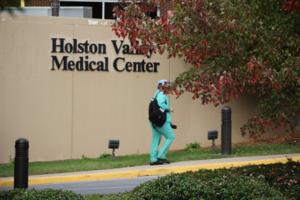
Ballad Health's hospital monopoly underperformed. Then Tennessee lowered the bar
Despite years of patient complaints and quality-of-care concerns, Ballad Health — the nation’s largest state-sanctioned hospital monopoly — will now be held to a lower standard by the Tennessee government, and state data that holds the monopoly accountable will be kept from the public for two years.
Ballad is the only option for hospital ...Read more
Popular Stories
- Immunotherapy boosts chemotherapy in combating stage 3 colon cancer
- Two patients faced chemo. The one who survived demanded a test to see if it was safe
- If US halted fluoride, kids' cavities would grow by millions, study says
- Mayo Clinic Q & A: Why a fluttering heart could lead to stroke
- Score a bonus with these video gaming tips: Extra life in the real world








